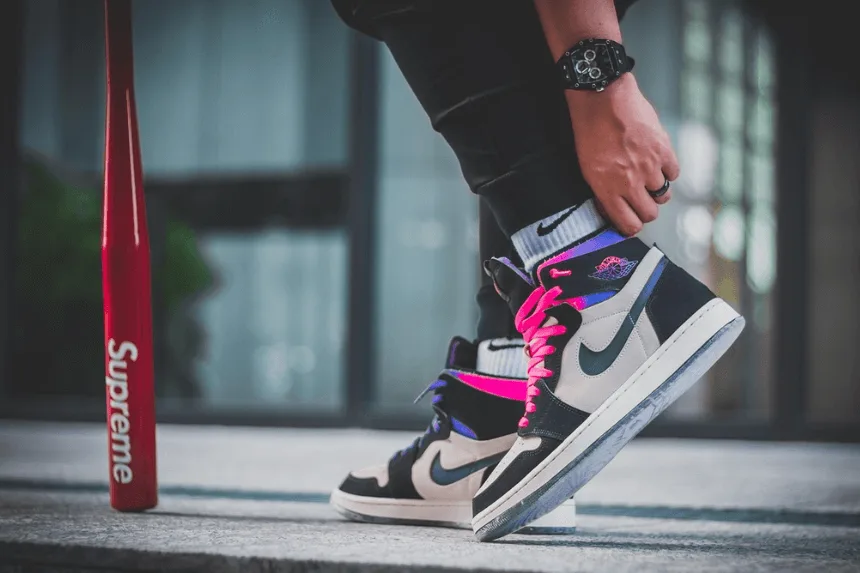Nike has cautioned that the reinstatement of Trump tariffs on imported products has the possibility to increase its operating expense by an astronomical figure of 1 billion dollars. The apparel giant that has always depended on global production, particularly those located in China, will have to rethink its supply chain policy. Such a transition will have far-reaching implications beyond just Nike since the whole US retail and manufacturing industry could be thrown out of whack.
- What are Trump Tariffs, and why are they coming back?
- What would Nike spend on the Trump Tariffs?
- Will Nike Increase Its Prices in the US?
- What are the Businesses Doing About the Supply Chain Tension?
- What does this entail as far as US-China Trade Relations go?
- Was there a possibility of long-term changes in the economy with Tariffs?
- What Are the Investors and Markets Responding?
- What are the Adjustments in Other Companies?
- Are tariffs the only solution?
- Where Is Trump’s Tariff Going?
- Final Thoughts
What are Trump Tariffs, and why are they coming back?
The Trump tariffs are the import duties that have been charged under Donald Trump’s presidency as part of his approach to the trade war. These tariffs were exercised in a bid to pressure other governments, particularly in China, to be viewed in a better position for trading. At first, they focused on steel and aluminum, and then extended to a wide spectrum of consumer goods.
Many of these measures have been reintroduced as part of the Trump administration policy in 2025, in which it has recovered many of them in the form of “Liberation Day” tariffs. These tariffs will automatically revert by July without new deals being signed, despite the tariffs having first been suspended to be negotiated. The unpredictability has companies such as Nike rushing to adjust their business to face a future of high prices. Here is the link to our article on Trump Tariff Reversal
What would Nike spend on the Trump Tariffs?
The Chief Financial Officer of Nike, Matthew Friend, has confirmed that the tariff charging an additional sum of up to one billion dollars can be imposed by the White House on all of the Trump tariffs. The harshest increase in tariffs has been imposed on China, which now accounts for 16 percent of the US-bound Nike footwear.
In order to absorb the effects, Nike indicates that it will withdraw its production in China to a high single-digit percentage by May 2026. Nevertheless, a move of production is not easy or free. Moving factories is associated with investments in infrastructure, training of a new workforce, and realignment of logistics, all of which never occur in the blink of an eye and are rarely sk-free.
Will Nike Increase Its Prices in the US?
Yes. As a matter of fact, as early as June, Nike has already declared price hikes in both specific footwear and apparel. Such price increases come after other competitors in the market, including Adidas, have made such adjustments since they are also victims of the new regime of taxes. Although the price increases might seem rather insignificant at first, they might accumulate for consumers who buy the commodity frequently and make their brand loyalty closely related to the given brand.
Under the dampening effect of the Trump tariffs, the increase in costs due to the inflationary pressures still present in the US economy may restrain consumer spending in the economy altogether. This is a big risk, especially to such a brand as Nik, where sales can be pegged on disposable income. Here is the link to our article on the Market Crash
What are the Businesses Doing About the Supply Chain Tension?
Nike is not the only one who is moving. There are alternative locations that other US firms are considering, like Vietnam, Indonesia, and Mexico, as a substitute for China. Such countries provide less expensive work and do not face the same intensity of tariffs at the moment. Nevertheless, they might not possess identical infrastructure or even workforce experience according to which makes it difficult to expand production rapidly.
On a larger scale, the trend may hasten a movement of production back to the US one of the ambitions of the Trump administration. However, home production will result in increased labor costs and a need for strict regulations that may eat into the profits.
What does this entail as far as US-China Trade Relations go?
Implications of Trump’s tariffs have never been merely an economic move, but as a geopolitical weapon. Even when delayed, the new round of tariffs has been stretching the relationship between the two major economies of the world. Although deals with China and India have been alluded to by the White House, President Trump also indicated that there are countries that would be forced to pay a tariff of up to 45 percent.
In response, China has retaliated rather proportionately, but most of the retaliation has been against American agricultural exports and rare earth materials. The actual harm can, however, be done through slower negotiations and greater distrust of each other. The severing of US-China trade may soon become the new normal in the long term.
Was there a possibility of long-term changes in the economy with Tariffs?
That is right, but this is what economists are cautioning. Noted economist Giovanni Peri of the University of California, Davis, implied that it is part of immigration policy and Trump tariffs that could threaten to stall the US economic growth with a decreasing workforce.
In case the tariffs are excessive, the companies may shrink their global presence permanently. Although this may sound like a victory for manufacturing in the US, it may also compromise the overall efficacy of supply chains across the world. A disintegrated globe may bottleneck innovation, exposure to the external world, and cause inflationary pressures at home.
What Are the Investors and Markets Responding?
It is interesting that after the publication of its earnings reports, the shares of Nike went up 10 percent in after-hours trading, despite its dismal long-term projections. Improved than expected results boosted the morale of the investors, and the active cost-cutting activities in Nike made the investors feel calm.
Nevertheless, analysts are not optimistic. It is the opinion of most people that the enforcement ofp tariffs to the full may have far-reaching effects on future earnings. It would either cause the cost burden to be imposed on their customers or absorbed within decreasing provisions, which is not the best situation for the shareholders.
What are the Adjustments in Other Companies?
Nike is not the only one. All three companies, Apple, Walmart, and General Motors,, revised their supply chain model. Others are petitioning the government to be exempted or given low rates. Others have gone further to automate and advance AI in an attempt to reduce the upsurge of labor and construction expenses.
Slow responders among the retailers can become a victim of gradual profit wearing or even exit the market. The smaller firms are highly susceptible, especially since they do not have the financial leeway of giants such as Nike. This may eventually lead to the monopolization of this industry and diminished competition.
Are tariffs the only solution?
According to trade experts, negotiations are the way to go instead of tariffs, as it is more sustainable in the future. Although tariffs may be a good tool for short-term leverage, they usually result in retaliatory moves and negatively impact the businesses within a country.
Rather, broad trade agreements that cover theft of intellectual property, currency manipulation, and employment standards could be more successful. But these need to be supported by both parties, and they take time, which has always been a challenge in US politics.
Where Is Trump’s Tariff Going?
The July deadline is approaching. Once the 90-day freeze expires and nothing significant is reached, the complete set of tariffs initiated by Trump will come in. To Nike and other multinationals, it translates to increased costs, slimmer margins,,s and the possible reduction in growth.
With the current political impetus in the practice of protectionism, such tariffs may either be prolonged or even added to, depending on what may result in future elections and events around the world. Company managers need to be able to adjust and keep up with the times, as the situation may be changing very quickly.
Final Thoughts
The renewal of Trump tariffs will mark the beginning of a new era in the US trade policy, and the consequences will be far-reaching. Although they can be regarded as a means of reshoring and area defence, the subject of costs is massive. Skyrocketing consumer prices, broken supply chains, and bad relations come to mind. With the world as a witness, the next few months will play out as to establish whether tariffs are a short-term pressure strategy or will become a long-term economic change. In any case, the debate regarding Trump tariffs will not end any time soon, as it will continue to dominate business strategy across the world in 2025 and beyond.








